Sailing is a magnificent way to experience the beauty of nature. However, if we are not careful and mindful, sailing and our everyday activities can be harmful to the environment and marine life. By introducing changes in our daily habits during sailing and stay at sea, we are one step closer to sustainable sailing and maintaining the natural balance in the environment.
1. Minimize the use of engines and outboarder
Open sails and the hull gliding through the sea is the most relaxing sound. Reduce noise pollution by sailing with the power of the wind wherever possible. After all, boats are designed for sailing. Instead of using the outboard engine row. Beware of leaks when refilling the outboarder tank.
Please keep a safe distance if you encounter wildlife while sailing, both for their safety as well as yours. Do not disturb marine mammals by making loud noises or harassing them.
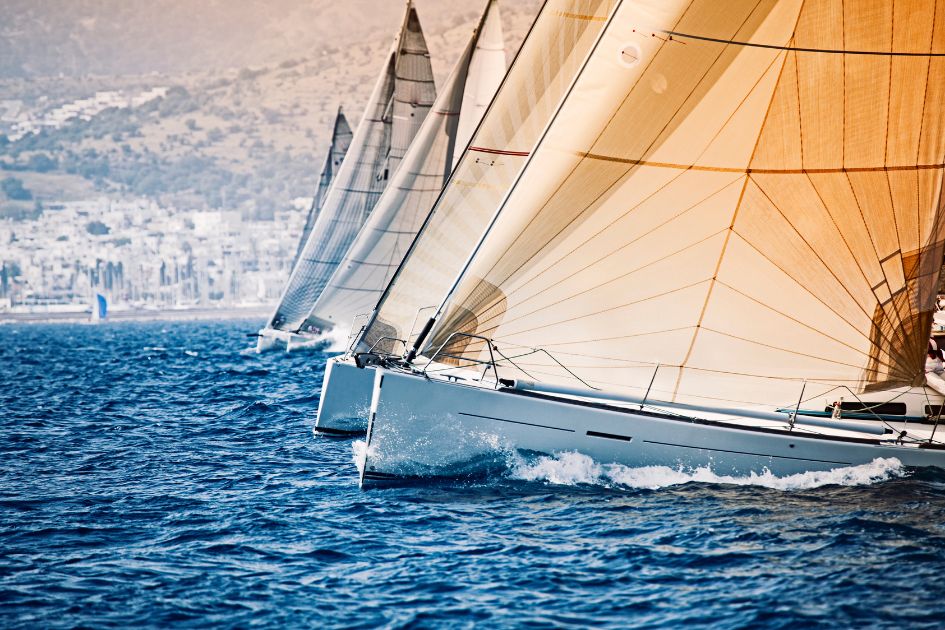
2. Pay attention to where you drop the anchor
Be sure to keep an eye on where you drop the anchor and be conscious of the location at all times. The most suitable place to anchor is on a sandy bottom, never on coral, and don't anchor on grass. Coral reefs are some of the most diverse and valuable ecosystems on Earth.
It is recommended that mooring buoys be used when available and that protected areas (such as Nature and National Parks) be respected.
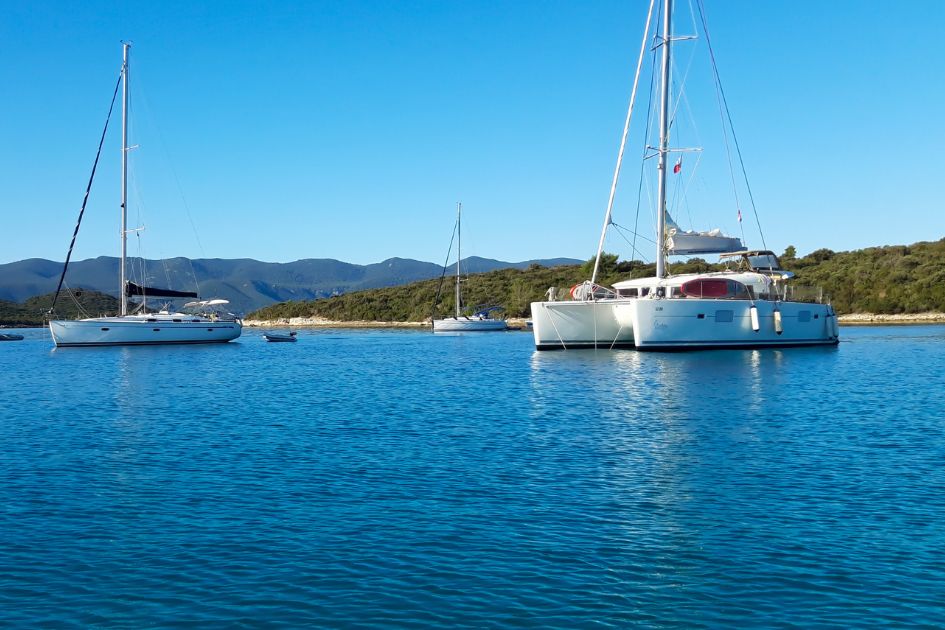
Yachts at the anchorage
3. Make locally-produced food your 1st choice
Food produced on local farms has multiple benefits for the environment, community, and our health. There are several reasons to buy locally:
- Reduction of food travel distances improves air quality
- Packaging is less involved, and here we are mainly talking about plastics
- Because it is grown in traditional methods, without the use of industrial technology, it is healthier.
- A direct farm-to-table method makes it tastier
- Contributing to the local economy and improving the quality of life in the local community
An integral part of life in Croatia is going to the green market or fish market almost every day, and this is one of the experiences you need to try while sailing the Adriatic. We can proudly say that we are grateful to have the luxury of buying traditionally grown food. On every island and small village, you can visit the local markets and farms. The local farms that grow their own vegetable and fruits are called OPG (Family Farm).
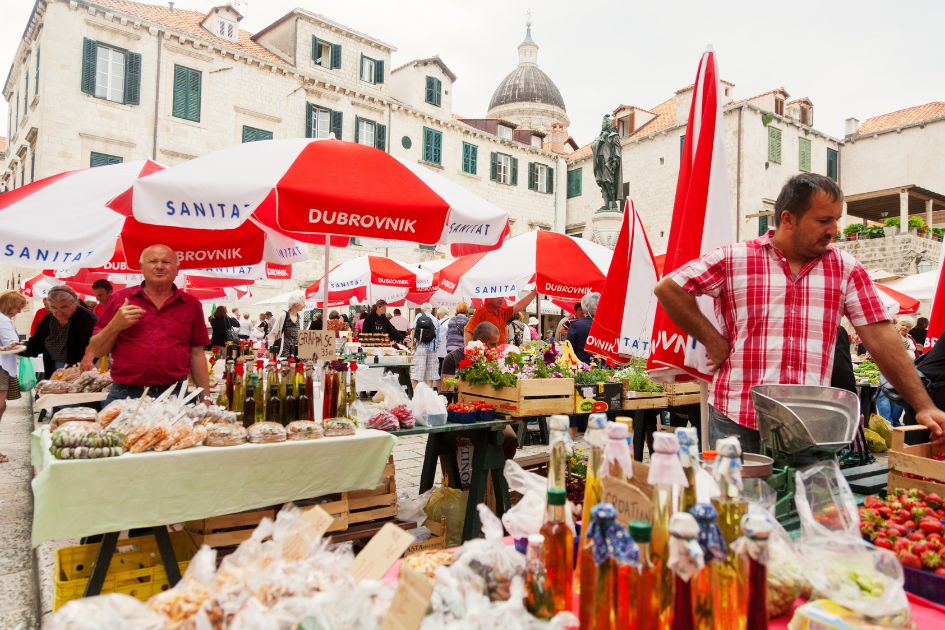
Local green market in Dubrovnik
4. Waste discharge
NEVER THROW ANYTHING OVERBOARD!
In each marina and port, you will be able to dispose of the waste generated during your charter week. On the following map, you can find recycling bin locations on the islands and Adriatic coastline in Croatia.
5. Black /Waste Water discharge
Each country has different rules about this, so make sure you check with the fleet when you check-in. As we speak of Croatia, there are no specific laws and enhanced controls regarding wastewater discharge. However, common sense says that waste tanks should be emptied in designated marina facilities or in the open seas. The black water tank must be used when in bays, coves, and marinas. Whenever in the marinas, use marina facilities /showers, toilets, etc.
6. Make sure that your Sunscreen is Eco-friendly
In a 2016 study, a team of international scientists found that a common chemical in many sunscreen lotions and cosmetics is highly toxic to juvenile corals and other marine life. Oxybenzone, or BP-3, is present in more than 3,500 skincare products worldwide for protection against the sun's harmful effects. The compound has been found entering the environment both through wastewater effluent and directly from swimmers wearing sunscreens. Source: National Ocean Service
Consider sunscreen without chemicals that can harm marine life, seek shade between 10 am & 2 pm, and use Ultraviolet Protection Factor (UPF) sunwear.
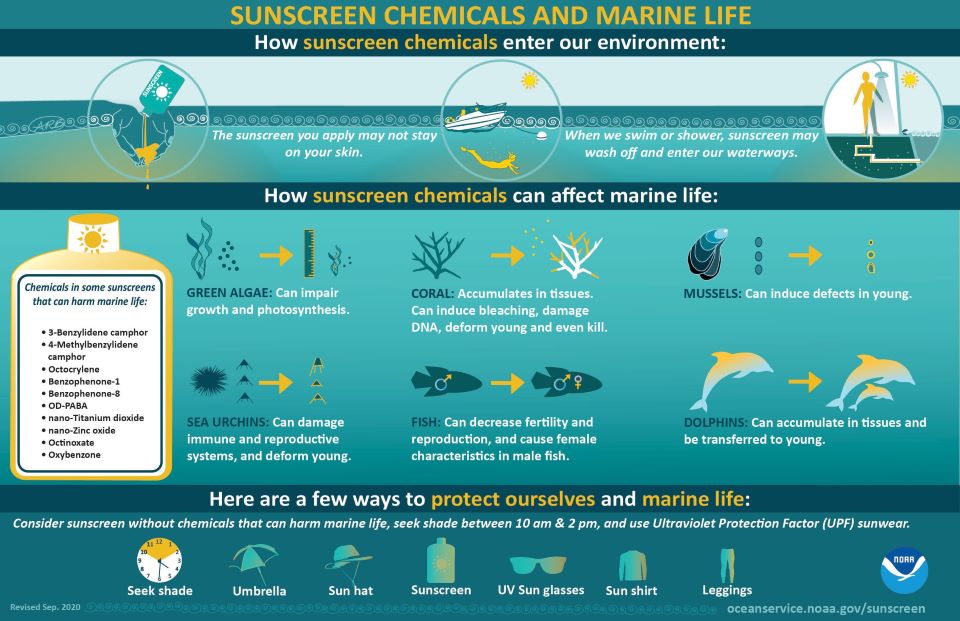
Illustration: How sunscreen chemicals enter our environment.
7. Use reusable cups and minimize plastic use
When sailing, reusable coffee cups, and water bottles are the perfect companions. When traveling ashore, you can avoid buying bottled water by having your own reusable water bottle.
Bringing your own shopping bags reduces the amount of plastic waste and saves you money.
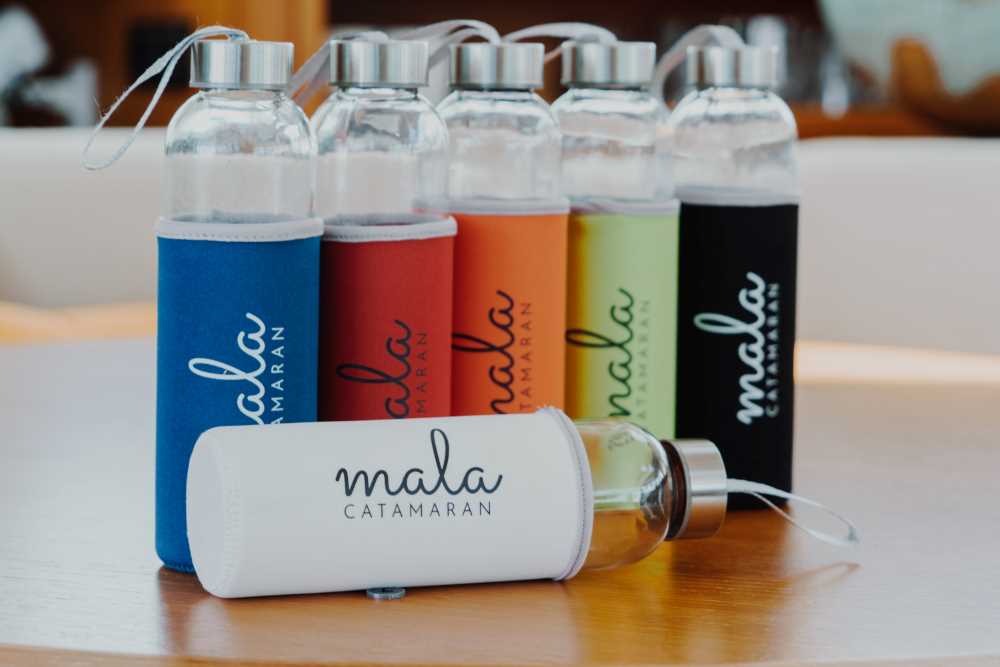
Reusable water bottles on the Catamaran Lagoon 570 Mala
Changes start with each individual. Each one of us is responsible for making small changes that ultimately have an immense impact on the preservation of the environment and the quality of life.
Take nothing but pictures; leave nothing but footprints.


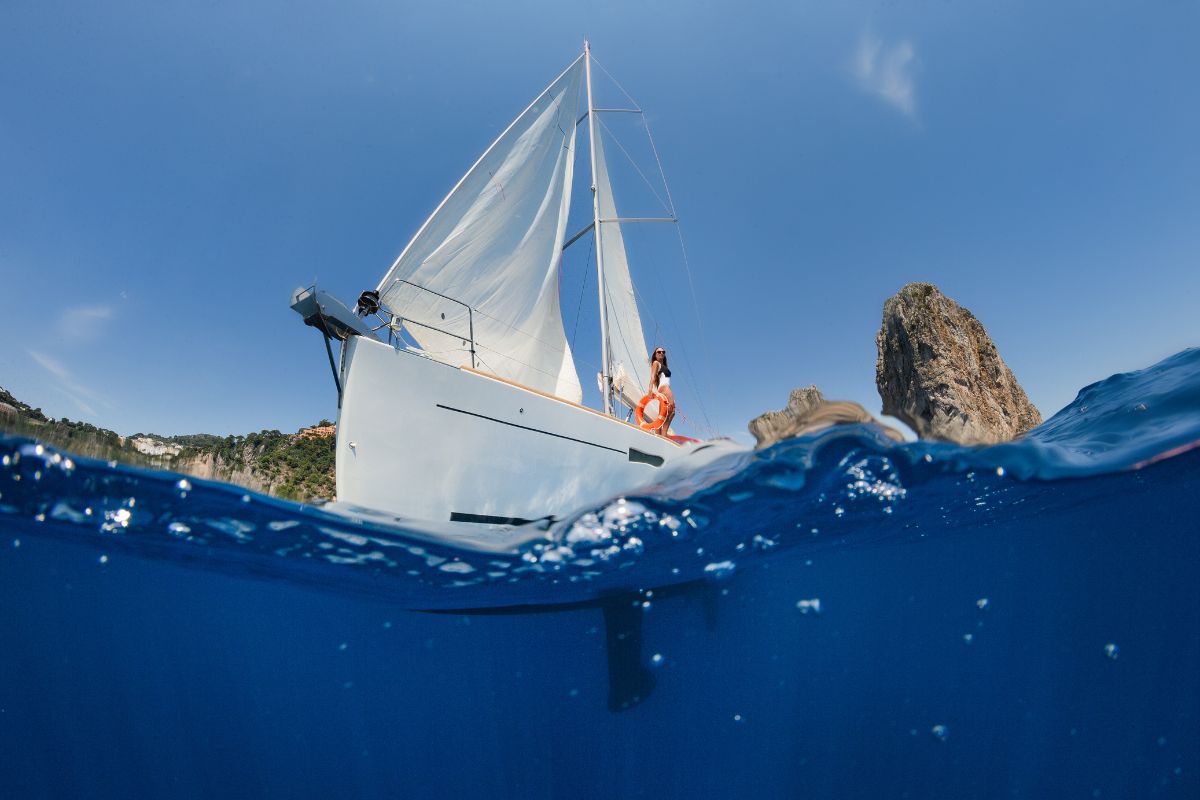


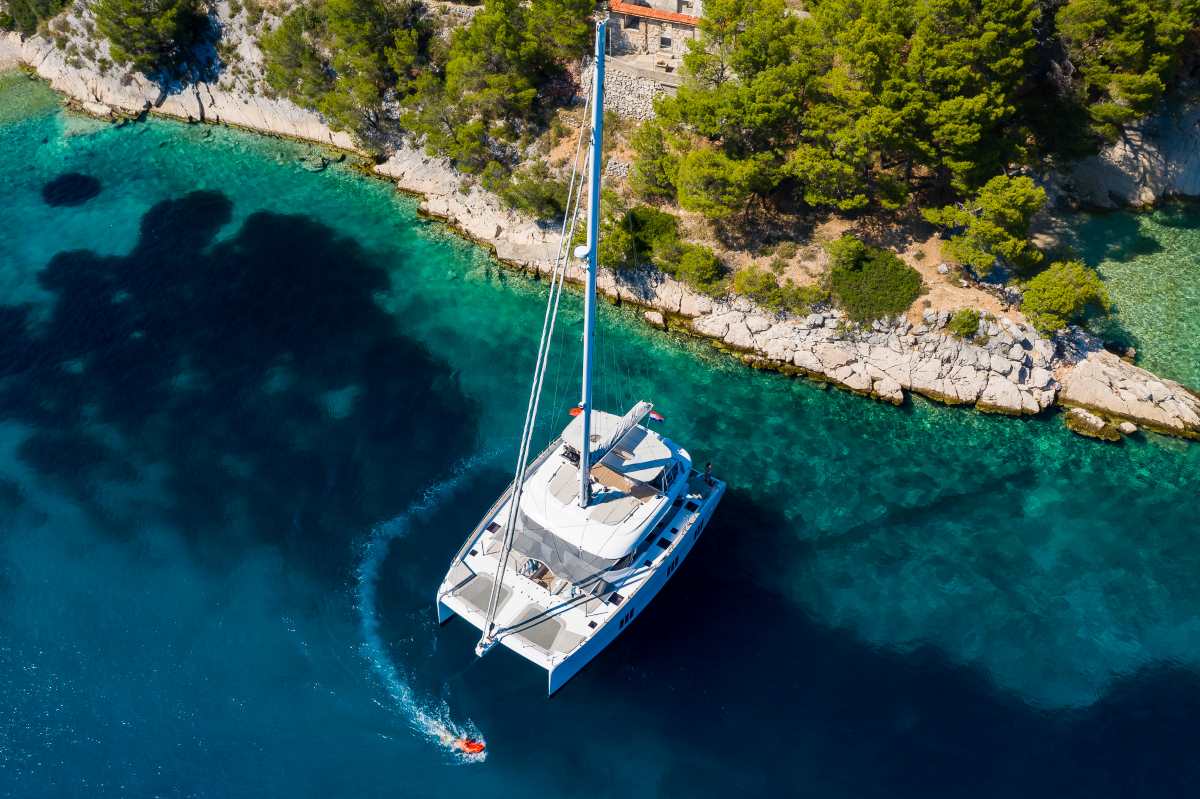
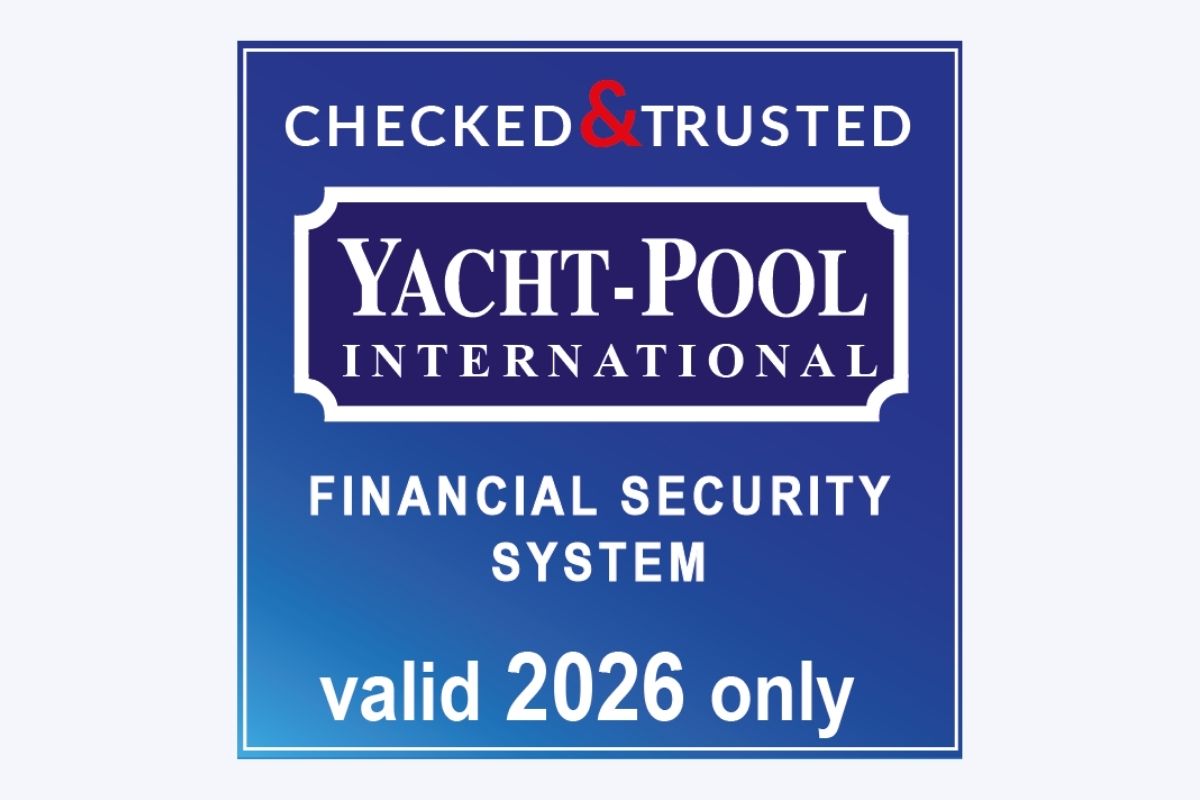
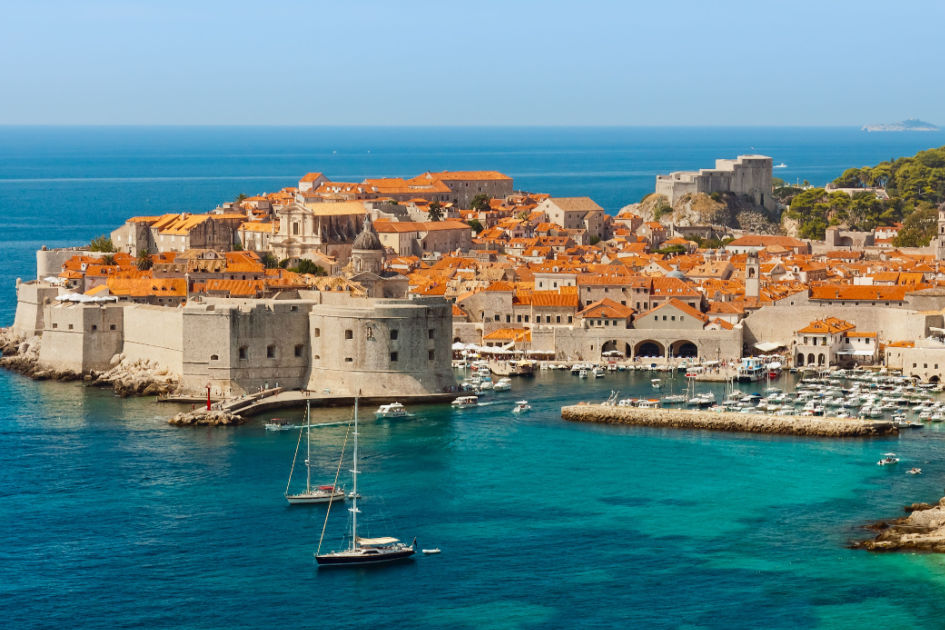
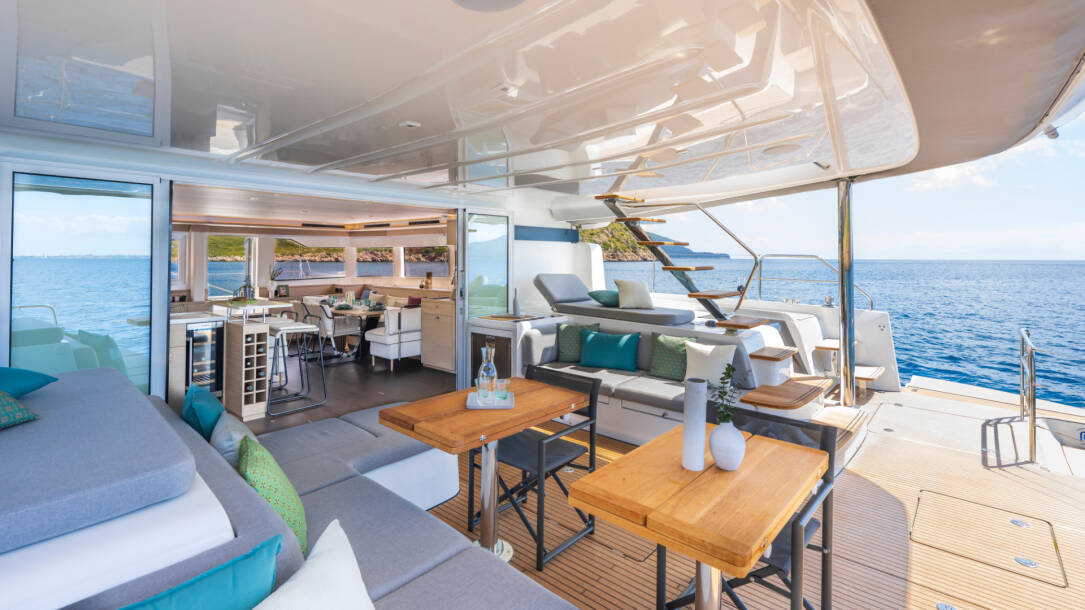
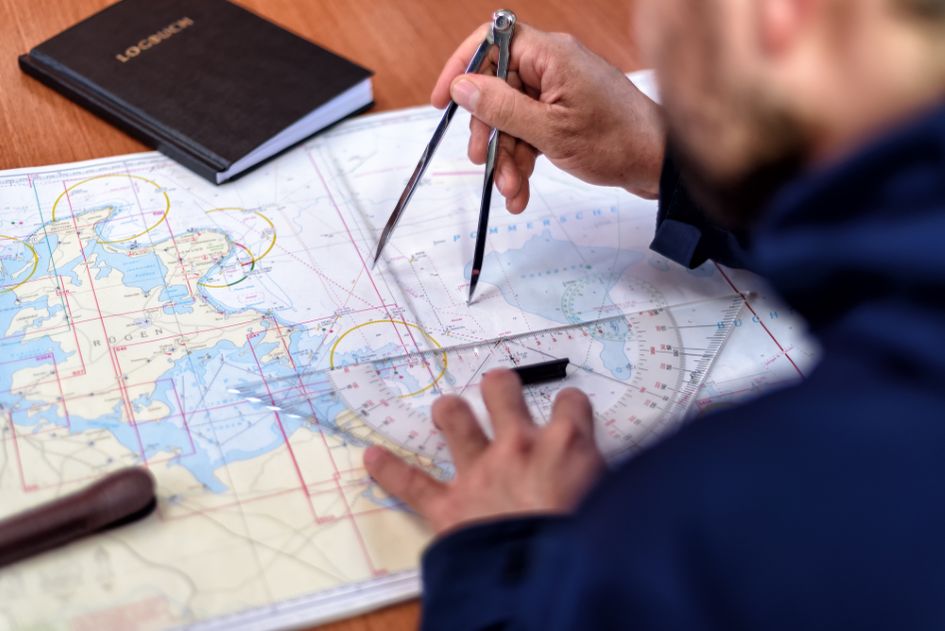

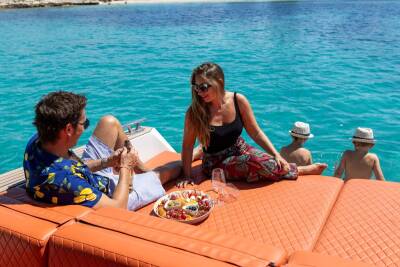


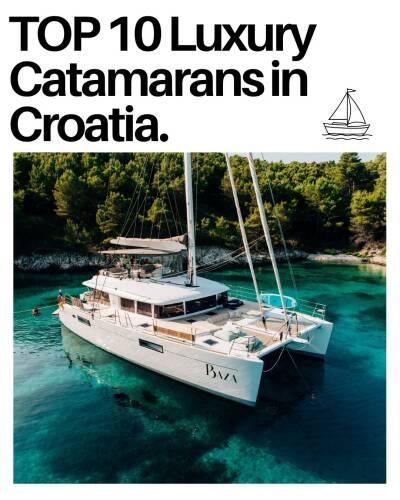
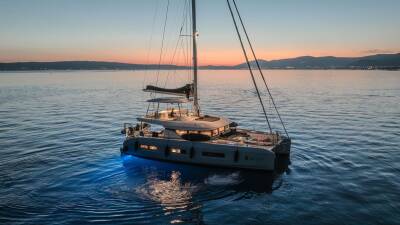
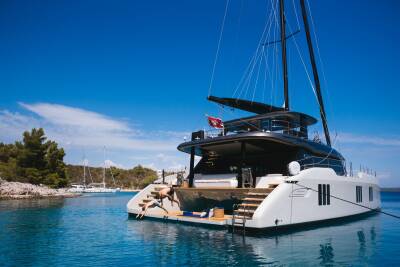
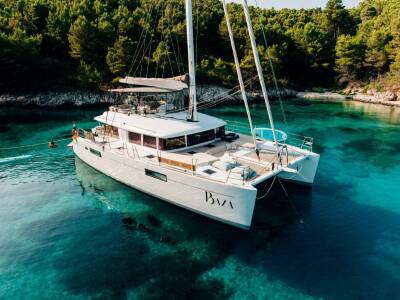
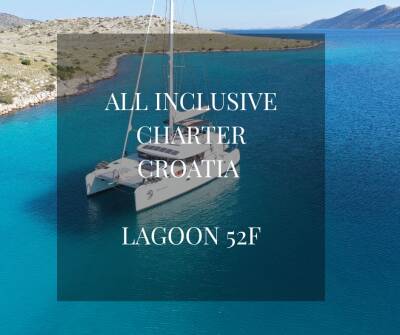

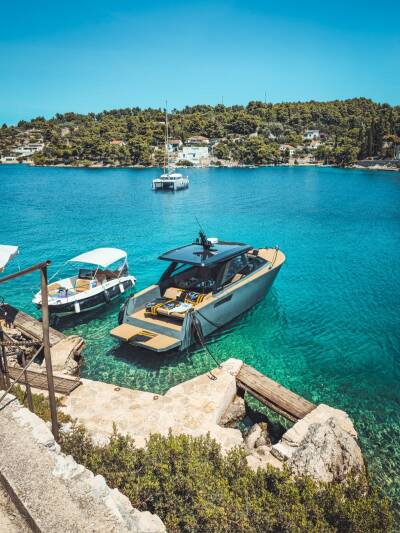
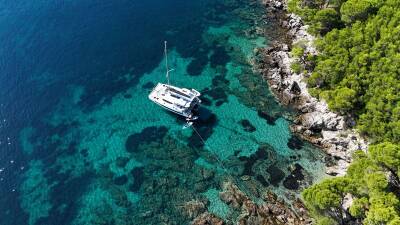

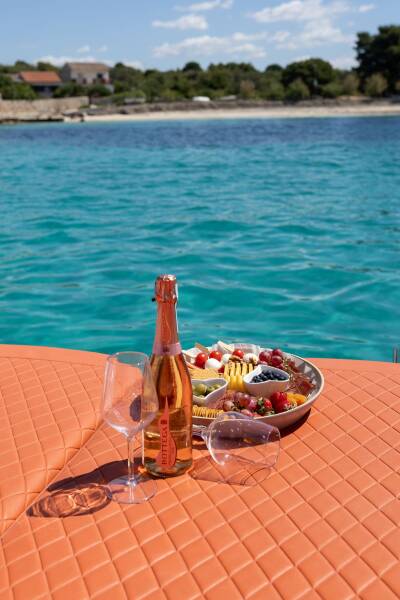
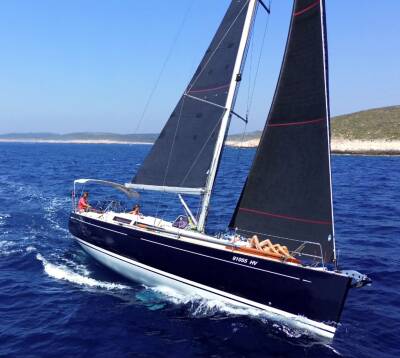
 Give us a call or drop an email, We`ll answer you within 24 hours
Give us a call or drop an email, We`ll answer you within 24 hours